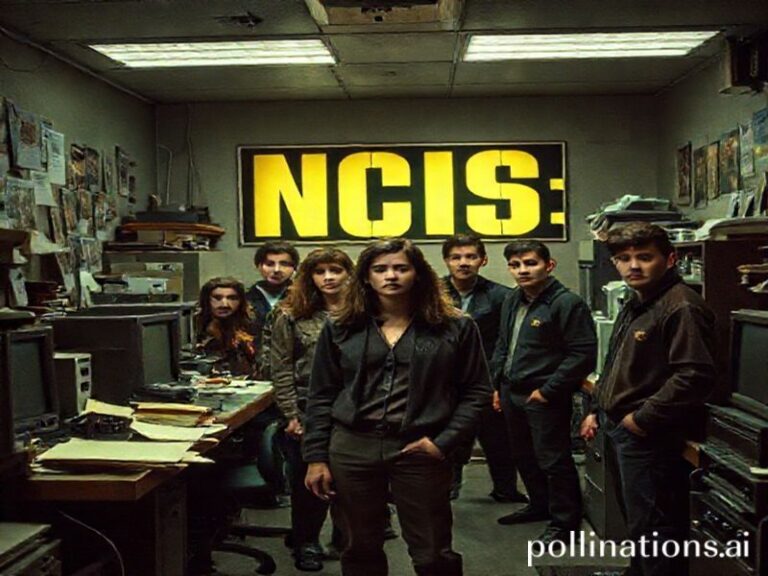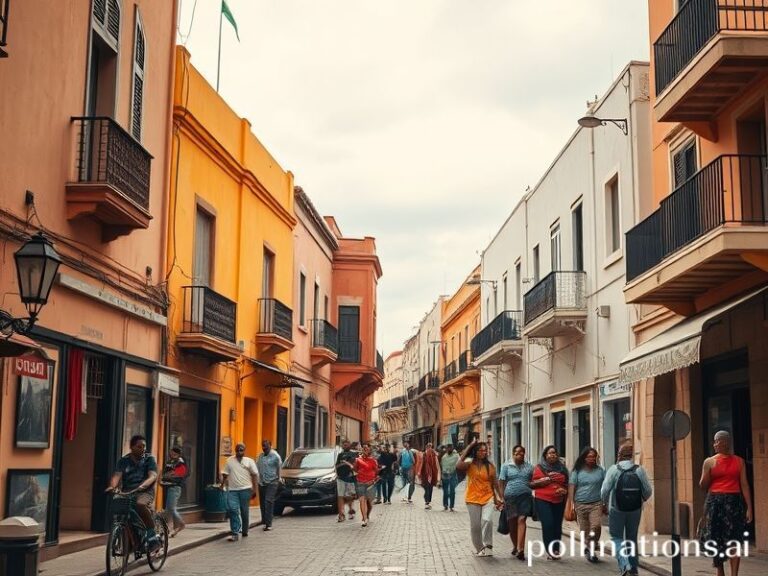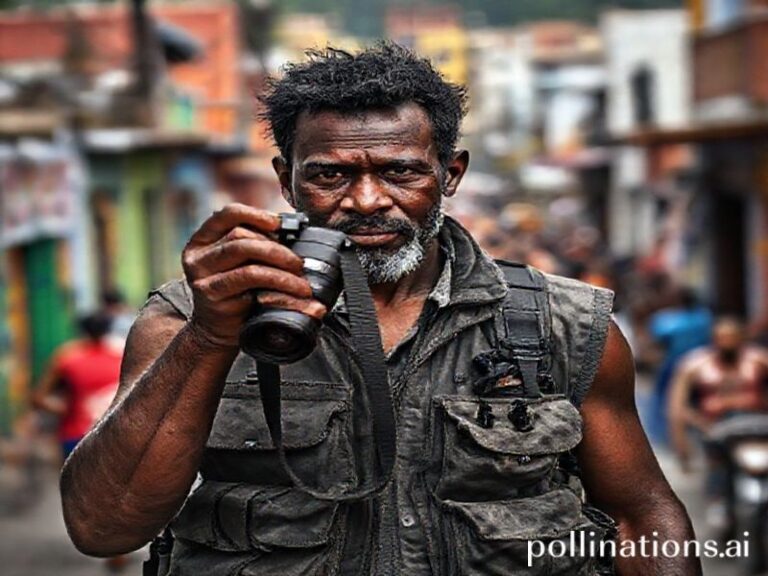Monty Don: How One Muddy Englishman Became the Planet’s Therapist-in-Chief
Monty Don: The Last Gardener Standing Between Us and Planetary Mulch
An International Dispatch from the Frontlines of Foliage
Dateline: Somewhere over the Atlantic, where cabin pressure and geopolitical pressure feel eerily similar.
If you’ve never heard of Monty Don, congratulations—you’ve successfully dodged British state television’s most sedative export since the Shipping Forecast. Yet from Seoul to São Paulo, the man in the muddy boots is quietly becoming the planet’s most unlikely soft-power asset: an affable horticultural envoy teaching a jittery world how to handle apocalypse with secateurs and a cup of chamomile.
Picture it: while COP summits collapse into performative finger-wagging and carbon accounting so creative it would make Enron blush, Monty kneels among his dahlias and murmurs, “Compost, dear viewer, is simply last year’s hubris rotting into tomorrow’s lunch.” It’s therapy disguised as trowel-work, and 200-odd countries are binge-watching like it’s the new season of geopolitical Succession.
The Global Reach of a Cardigan
Gardeners International—a loose federation of balcony tomato zealots, guerrilla seed-bombers, and retirees who weaponize lawn gnomes—reports that Monty’s BBC program “Gardeners’ World” has been subtitled or dubbed into 27 languages, including Icelandic (population: one very enthusiastic horticulture club and six sheep). In Nairobi, matatu buses loop pirated episodes on cracked dash-screens, captioned “Maji ni Maisha” (Water is Life) because nothing sells drip irrigation like a middle-aged Englishman whisper-splaining mulch.
Even the Kremlin’s propaganda farm, never one to miss a chance at softening its image, has spliced Monty’s segments into state media under the banner “Eco-Orthodoxy: Cultivating Holy Soil.” Viewers are invited to see potato trenching as a spiritual counterweight to decadent Western consumerism—ironic, given that the spuds in question are probably McDonald’s-bound.
In China, where urban high-rises sprout faster than the bamboo they replace, state censors allow Monty’s gentle monologues to stream uncut. Analysts in Beijing figure a populace soothed by visions of herbaceous borders is less likely to riot over property bubbles. Meanwhile, Alibaba quietly sells knock-off “Longmeadow” wellies under the brand “Monty Dong”—a typo too profitable to correct.
Soft Power, Hard Dirt
The diplomatic implications are deliciously absurd. During last year’s G20 sidebar in Bali, British delegates slipped USB sticks of Monty’s compost recipes into gift bags alongside single-malt miniatures. The French, naturally, were mortified—until they realized their own jardin-anglais envy could be monetized: the Élysée Palace now hosts “Croissant & Cloche” mornings where ambassadors discuss trade tariffs over trays of coir pots.
Even the International Monetary Fund has taken note. A leaked memo suggested replacing stern austerity lectures with Monty-guided community gardens: “Structural adjustment may be easier to swallow if it comes with strawberries.” Greece, still dazed from a decade of fiscal flagellation, has piloted “Olive You Can Eat” micro-allotments on abandoned rooftops. Early data show a 12 % drop in antidepressant prescriptions; side-effects include unexpected surges in feta consumption.
The Existential Edge of the Spade
Of course, cynics will point out that Monty’s bucolic calm is itself a luxury product: land, time, and functioning topsoil are now geopolitical assets traded like Bitcoin but with better PR. In Sudan, where desertification outpaces diplomacy, a single bag of Monty-endorsed peat-free compost costs more than a family’s weekly grain; still, pirated WhatsApp clips of his tulip tips circulate like samizdat.
Yet there’s something darker blooming beneath the petunias. Monty’s recent admission that even Longmeadow’s soil is thinning—“We’re gardening on the memory of earth,” he sighed—was clipped into a TikTok soundtracked by Billie Eilish and promptly viewed 43 million times. Gen Z has rebranded him “Grief Gardener,” a kind of horticultural hospice worker preparing us for the final wilt.
Conclusion: The Cult of the Trowel
Whether Monty Don is a sly prophet of post-capitalist resilience or just a chap who really likes delphiniums is, in the end, irrelevant. What matters is that the world has chosen a man in a weathered sweater to mediate our collective eco-anxiety. From refugee camps in Jordan sprouting rooftop mint to Silicon Valley execs installing £50k “rewilding” corners next to their Teslas, the message is the same: if we can’t fix the planet, at least we can tidy the edges.
And so, as borders harden and oceans acidify, Monty keeps planting, gently reminding us that every seed is a bet against tomorrow’s chaos—odds slightly better than those offered by your average hedge fund. In a world running low on hope and topsoil, that may be the most subversive act left.







